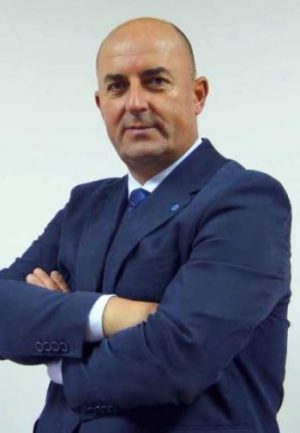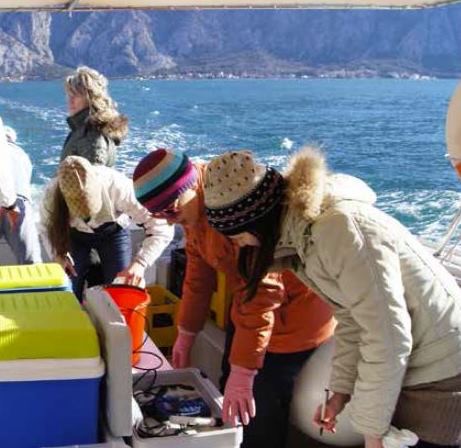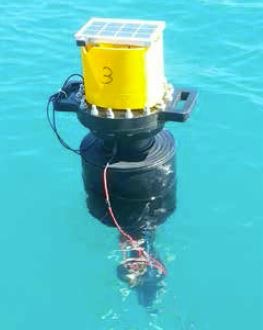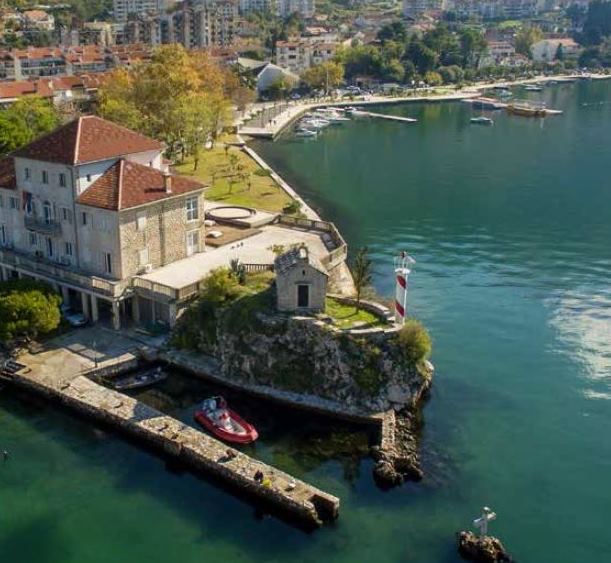With four national parks and a multitude of forest systems, more than 50 protected plant species and 320 animal species, although small in size, Montenegro has three different natural environments at a distance of only 100 kilometers: the coast, karstland, and the region of high mountains.
In 1988, the Montenegrin parliament declared Montenegro as an ecological state, confirmed by the international community in 1992 at the United Nations Conference on Environment and Development in Brazil.
Taking into account the impacts of the proximity of the sea to the entire ecosystem as well as human health, we bring you a story about the Kotor Institute of Marine Biology, the only scientific research institution in Montenegro that deals with the biology of the Adriatic Sea.
For 56 years, employees and associates at the Institute of Marine Biology in Kotor study biodiversity of the southern Adriatic in order to preserve it – protect it from the impact of climate-change, extinction and migration of marine organisms, and pollution caused by man’s activities. In the capacity of the organizational unit of the University of Montenegro, within the Institute today there are Laboratory for benthos and marine protection, Laboratory for ichthyology and coastal fishery, Laboratory for marine chemistry and oceanography, Laboratory for plankton and seawater quality and Laboratory for development research and mariculture. The Institute publishes a scientific magazine “Studia Marina”. By providing recommendations for responsible use of marine resources, the Institute cooperates daily with almost all institutions in Montenegro.
 Our interlocutor is Ph.D. Aleksandar Joksimovic, the Head of the Laboratory for ichthyology and coastal fishery in this Institute. Mr. Joksimovic received a doctorate at the Faculty of Biology of the University of Belgrade. His doctoral dissertation was about ‘’Fishery Biology and population dynamics of some economically important fish species of the Montenegrin coast’’, and he is also the main negotiator of Montenegro for the opening of negotiation Chapter 13 (Fisheries) of the EU as well as the scientifically responsible person on behalf of Montenegro at the General Fisheries Commission for the Mediterranean.
Our interlocutor is Ph.D. Aleksandar Joksimovic, the Head of the Laboratory for ichthyology and coastal fishery in this Institute. Mr. Joksimovic received a doctorate at the Faculty of Biology of the University of Belgrade. His doctoral dissertation was about ‘’Fishery Biology and population dynamics of some economically important fish species of the Montenegrin coast’’, and he is also the main negotiator of Montenegro for the opening of negotiation Chapter 13 (Fisheries) of the EU as well as the scientifically responsible person on behalf of Montenegro at the General Fisheries Commission for the Mediterranean.
− More than 20 national, bilateral and international scientific and research projects are currently being implemented at the Institute, and at the same time, thanks to the strong will of the employees, numerous student visits, such as the traditional May spring school, are conducted for biology students from all the countries of the region and beyond. We, at the Institute, carry out numerous educational campaigns because we want to transfer the results and methods of our research to interested, young people − said Ph.D. Joksimovic.
National projects, conducted for the needs of the Ministry of Science and the Ministry of Agriculture and Rural Development, are primarily dedicated to sustainable development of marine fisheries but also to mariculture because natural resources are rather prevalent and burdened with the outflows of polluting substances into the environment. Although the Montenegrin fleet is small, a large number of fishing vessels of other Adriatic countries are extremely active in the Adriatic Sea, resulting in a noticeable downward trend in marine resources.
− In cooperation with partner institutions, the Institute also implements IPA projects from the Pre-accession Assistance allocated funds of the European Union, such as the recently completed NetCet project, dedicated to the research and study of whales, turtles, and other marine mammals. The DeFish Gear project is also worth mentioning, focusing on the analysis of marine waste, primarily particles and filaments of plastic, which are potential foods of marine organisms, and can be found in their organs, as well as on the surface and the bottom of the sea − Ph.D. Joksimovic told us.
The Institute also has an accredited laboratory for monitoring the sanitary quality of seawater. For many years, the quality of water on public beaches has been checked for the needs of the Public Enterprise for coastal zone management.
In the previous years, the South Adriatic developed a model for the protection against oil pollution and its derivatives, which in case of accidental situations could be spilled from ships, and surveys have been carried out on potential dangers of ballast water spillage (water that the vessels are sucking for their stability) in the coastal area, under IPA projects “HAZADR” and “BALMAS”.
Food coming from the sea is significantly present on the tables of inhabitants of the coast, but also of the inhabitants of the entire region. With the support of the Albert II Foundation from Monaco, the Institute has been implementing a project for exploring the Pen Shell (Pinna Nobilis), a very important species that was once dominant in the Bay of Kotor but has become compromised over the past decades. The emphasis is placed on the revitalization of this species and its artificial reproduction in order to eventually be returned to the natural habitat.
Four years ago, the Ministry of Science launched a competition for the establishment of the first Center of Excellence in Montenegro, which was announced as partners by the Faculty of Electrical Engineering and Biotechnology of the University of Montenegro, the Institute of Public Health and the Institute of Marine Biology, and after a long evaluation process they were given the chance to, form BiO-ICT, the first Center of Excellence in the field of biotechnology and bioinformatics, through the HERIC project funded by the World Bank.

Within the BiO-ICT Center, and in cooperation with the Center for Ecological Security of the Russian Academy of Sciences and Arts from St. Petersburg, the status of shellfish used in human nutrition is monitored. The system measures the cardiac activity of the shellfish through the sensors on the shells, and cardiac rhythm of the shellfish obtained by means of optical cables and transmitters on the monitors. The essence of this measurement is that in this way you get an overview of the situation in real time, that is you learn how shellfish react to changes in the marine environment which is otherwise very dynamic. If the heart rate deviates from normal, this indicates that the changes have occurred, and at that point, the team goes to the eld to sample water and determine what is the cause of the changes, through chemical and microbiological analyzes. The system was set up in an experimental farm in front of the Institute and in the private farm “COGI mar” and according to Mr. Joksimovic, so far eco-toxicological analysis of heavy metals in tissues of shellfish, sediment, and water have always been within normal limits, so we can freely conclude that food caught in the bay has no negative impact on human health.
The Bio-ICT Centre of Excellence has enabled the Institute to cooperate with various businessmen dealing with the cultivation of fish and shellfish. Ph.D. Joksimovic singled out BokaGard, a business unit of Skoljka Boke, which today follows all trends in science and the result of this successful cooperation is a certificate of quality that enables the export of products outside Montenegro. In the mentioned farm, mussels, and oysters are produced, and the quality of the sea water, in which they are grown, is estimated based on microbiological parameters.
The Institute is engaged by the Ministry of Agriculture and Rural Development for the development of mariculture and monitoring of the quality of seawater in farms. Parameters are measured every 15 days and based on them, a database is created, available to breeders. In addition to monitoring, it is the Institute’s obligation, if an irregularity is detected – that the parameters are beyond the limit values, to alert breeders and recommend for the farm to be temporarily closed in order to investigate the causes of the deviation.
So far it has not happened that some of the breeding farms are closed, because there is no longer an active industry, and besides, there is a phenomenon of self-purification in the waters of the Bay of Kotor, as many rivers with a large flow of fresh water flow into the sea. All sampled waters are mainly the first category, which is confirmed by the analysis of water on the beaches, that are performed during the summer season for the Public Enterprise for the coastal zone.
 This summer, within the framework of the project implemented by the Bio-ICT Centre for Excellence, in partnership with the Public Enterprise for coastal zone management, and the company “APLITUDO” from Podgorica, smart buoys were installed, on several locations in the open sea and one in the Bay of Kotor, which are powered by solar energy and are used to measure the salinity, temperature and pH of the water. The measured data are sent to the base of the site using GPRS. As this is a pilot project, we are working on a model for the data to be available for interested individuals and companies, through registration and subscription, and in the future, this concept could become an open data form, with the extension of the monitored parameters.
This summer, within the framework of the project implemented by the Bio-ICT Centre for Excellence, in partnership with the Public Enterprise for coastal zone management, and the company “APLITUDO” from Podgorica, smart buoys were installed, on several locations in the open sea and one in the Bay of Kotor, which are powered by solar energy and are used to measure the salinity, temperature and pH of the water. The measured data are sent to the base of the site using GPRS. As this is a pilot project, we are working on a model for the data to be available for interested individuals and companies, through registration and subscription, and in the future, this concept could become an open data form, with the extension of the monitored parameters.
Since its inception, the Institute of Marine Biology has been successfully cooperating with Belgrade Institute for Biological Research “Sinisa Stankovic”, through activities related to bioindicators of the environment. Ichthyologists use different tools and methods to sample living organisms – fish, crayfish, and shellfish, and their habitat, and biologists from the Institute “Sinisa Stankovic”, do over two hundred analysis on the tissues of these organisms (muscles, liver, gills).
− Through this form of cooperation, we have the results of how the organisms respond and what happens in their tissues in relation to the pollution that can come from the outer environment into the seawater and thus to the food chains of different species. When I moved to Kotor twenty years ago, there were noticeable problems with the wastewater from the sewage systems that were manifested as the turbidity of the surface layer, the disorder of clarity, the change of colour into yellow and red, as well as the smells that spread during the summer months. In the last decade, the problems have been solved thanks to the system for collecting and purifying wastewater from Boka which is located in Traste. Technical water is discharged at 3,650 meters from the coast, at a depth of 56 meters. The discharge was designed in the seventies because there are extremely strong currents in that place, and the water discharged there has little effect on the Adriatic ecosystem − explains Joksimovic.
In the summer months, Budva has overcrowded capacities, and it happens that due to the heavy load there is sometimes a pipe break, which causes a decrease in water quality due to the increased number of coliform bacteria. By alerting the competent institutions, these accident situations are solved in the shortest possible time, and the quality of the water is brought about to its original state. According to Ph.D. Joksimovic, earlier there were infections such as abdominal pain and skin changes among bathers that have come into contact with the water of poorer quality. These are mostly symptoms that are cured quickly. In the long run, the system is viable and in function.

The Institute, with its numerous associates, carries out actions to raise awareness of the importance of preserving the sea and coastal area. There is also cooperation with several non-governmental organizations that are making great efforts to change the irresponsible behaviour of individuals with actions for cleaning the coastal area.
− We want to teach children that the sea is our heritage, that they should take care of it and respect it so that it is clean because we inherited it clean from our ancestors. Nobody who comes here will neither pollute it nor clean it. As a human species, we must be aware that we are only a part of nature, not its masters. Therefore, we must not behave that way, because nature is a great living organism that requires attention. We are witnessing the changes that are taking place due to our activities, but they are not limited to the sea. We are aware that summers became hot and winters extremely cold in the areas where they were not like that earlier, while the frequency of hurricanes and typhoons increased. Nature’s clock is ticking the eleventh hour, therefore it is necessary to do everything we can to change the consciousness of people around us, otherwise, the bough we are sitting will be cut off. I believe it is not too late for changes – concluded Ph.D. Joksimovic.
Prepared by: Marija Nesovic
This interview was originally published in the ninth issue of the Energy Portal Magazine, named ECOHEALTH.

